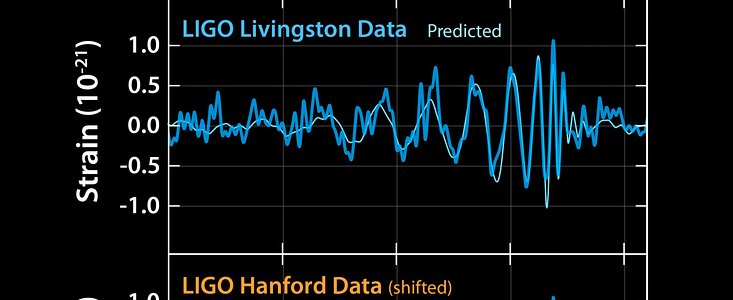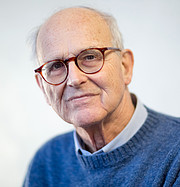- News
- Science
- Scientific Bodies
- Divisions
- Commissions
- Commission A1 Structure
- Commission A2 Structure
- Commission A3 Structure
- Commission A4 Structure
- Commission B1 Structure
- Commission B2 Structure
- Commission B3 Structure
- Commission B4 Structure
- Commission B5 Structure
- Commission B6 Structure
- Commission B7 Structure
- Commission C1 Structure
- Commission C2 Structure
- Commission C3 Structure
- Commission C4 Structure
- Commission D1 Structure
- Commission E1 Structure
- Commission E2 Structure
- Commission E3 Structure
- Commission E4 Structure
- Commission F1 Structure
- Commission F2 Structure
- Commission F3 Structure
- Commission F4 Structure
- Commission G1 Structure
- Commission G2 Structure
- Commission G3 Structure
- Commission G4 Structure
- Commission G5 Structure
- Commission H1 Structure
- Commission H2 Structure
- Commission H3 Structure
- Commission H4 Structure
- Commission J1 Structure
- Commission J2 Structure
- Commission J3 Structure
- Commission X1 Structure
- Commission X2 Structure
- Past Commission Organising Committees
- Working Groups
- Centres
- Scientific Meetings
- Rules & Guidelines
- General Assemblies
- Meeting Proposals
- Future IAU Meetings
- General Assemblies
- EC Meetings
- Officers' Meetings
- Regional Meetings
- Symposia
- Focus Meetings
- Institutional Meetings
- IAU Offices Meetings
- IAU-Sponsored Meetings
- Letters of Intent submitted for 2024
- Letters of Intent submitted for 2023
- Letters of Intent submitted for 2022
- Letters of Intent submitted for 2021
- Letters of Intent submitted for 2020
- Past IAU Meetings
- Templates
- Other Meetings
- Grants & Prizes
- Scientific Bodies
- Publications
- IAU Publications
- IAU Strategic Plan
- Symposia
- WGSBN Bulletins
- Regional Meetings
- Information Bulletins/Catalyst
- E-Newsletters
- Focus Meetings
- Transactions A
- Transactions B
- Related Publications
- GA Newspapers
- CAPjournal
- IAU Books
- Brochures
- IAU Offices
- WG Reports
- Commission Reports
- Division Reports
- Past IAU Publications
- Rules, Guidelines and Instructions for Proceedings
- Publishers
- IAU Publications
- Administration
- About the IAU
- Statutes & Rules
- IAU Policies
- IAU Executive Bodies
- IAU Secretariat
- Resolutions
- Members Administration
- Administrative Dates & Deadlines
- International Organisations Relations
- Donate to the IAU
- Training in Astronomy
- Astronomy for Education
- Astronomy for Development
- Astronomy for the Public
- Office for Astronomy Outreach
- FAQ
- Themes
- Satellite Constellations
- Astronomy in Everyday Life
- How to Report a Discovery
- Careers in Astronomy
- Defining our Place in the Cosmos
- The Constellations
- Light Pollution
- Measuring the Universe
- Near Earth Objects
- How to Participate in Astronomy Research
- Naming of Astronomical Objects
- Naming of Exoplanets
- Buying Star Names
- Naming Stars
- Pluto and the Solar System
- IAU Member Statistics
- Our Moon: the Moon
- Meteors & Meteorites: The IAU Definitions of Meteor Terms
- UNESCO-IAU Portal to the Heritage of Astronomy
- Social Media
- Past Events
- Call for Online Resources
- Astronomy@Home Awards
- Contact
iau1602 — Press Release

5 May 2016
Recipients of 2016 Gruber Cosmology Prize Announced
The 2016 Gruber Foundation Cosmology Prize recognizes Ronald Drever, Kip Thorne, Rainer Weiss, and the entire Laser Interferometer Gravitational‐Wave Observatory (LIGO) discovery team for the first observation of gravitational waves, ripples in space‐time predicted by Einstein a century ago.
The Cosmology Prize honours leading cosmologists, astronomers, astrophysicists or scientific philosophers for theoretical, analytical, conceptual or observational discoveries leading to fundamental advances in our understanding of the Universe. This year’s prize will be presented to Drever, Thorne and Weiss in a ceremony on July 12, during the 21st International Conference on General Relativity and Gravitation, held at Columbia University, New York.
“Many years of hard work by teams of dedicated scientists and engineers have culminated in this truly momentous discovery. With this observation, they have not only added further support to Einstein’s theory of gravity, but also opened up a new field of observational astronomy”, said Robert Kennicutt, Chair of the Selection Advisory Board to the Gruber Foundation Cosmology Prize.
One hundred years ago, Einstein’s theory of general relativity reimagined Newton’s conception of gravity. Rather than treating gravity as a force acting across space, Einstein’s equations revealed gravity to be a property of space and time. Einstein realised that gravity would manifest as waves traveling at the speed of light, and those waves would be passing through the Earth all the time. But they would be so weak that it would be impossible to detect them — or so it was thought.
The LIGO team’s announcement of the detection of gravitational waves on 11 February this year electrified the physics community and captured the imagination of media outlets around the world. LIGO had detected one of nature’s truly exotic events: the collision of two black holes.
That detection, which took place in 2015 and which provided support for a key prediction of Einstein’s general theory of relativity, was itself a technologically and scientifically herculean achievement. But the detection also open the door on a new means of studying the universe — a first glimpse into the strong‐gravity regime of Einstein’s theory of general relativity, the part of the theory that governs the dynamics of the most powerful phenomena in the universe.
Now that the LIGO team knows the experiment works, they’re confident that strong‐gravity detections will become more or less routine. Promising candidates for future study include exploding stars known as supernovae, spinning, and even colliding, neutron stars and the powerful phenomena known as gamma-ray bursts.
In addition to a cash award of $500 000, to be shared equally between Drever, Thorne and Weiss, each of the three will receive a gold medal and a citation that reads: The Gruber Foundation proudly presents the 2016 Cosmology Prize to Rainer Weiss, Kip Thorne, Ronald Drever, and the entire LIGO team for pursuing a vision to observe the universe in gravitational waves, leading to a first detection that emanated from the collision of two black holes. This remarkable event provided the first glimpse into the strong‐gravity regime of Einstein's theory of general relativity that governs the dynamics of black holes, giving direct evidence for their existence, and demonstrating that their nature is consistent with the predictions of general relativity.
More information
The IAU is the international astronomical organisation that brings together more than 10 000 professional astronomers from almost 100 countries. Its mission is to promote and safeguard the science of astronomy in all its aspects through international cooperation. The IAU also serves as the internationally recognised authority for assigning designations to celestial bodies and the surface features on them. Founded in 1919, the IAU is the world's largest professional body for astronomers.
The Gruber Foundation honours and encourages educational excellence, social justice and scientific achievements that better the human condition. For more information about the Foundation’s guidelines and priorities, please visit www.gruber.yale.edu.
The Gruber International Prize Program honours contemporary individuals in the fields of Cosmology, Genetics, Neuroscience, Justice and Women's Rights, whose groundbreaking work provides new models that inspire and enable fundamental shifts in knowledge and culture. The Selection Advisory Boards choose individuals whose contributions in their respective fields advance our knowledge, potentially have a profound impact on our lives, and, in the case of the Justice and Women's Rights Prizes, demonstrate courage and commitment in the face of significant obstacles.
In 2000, the Gruber Foundation and the International Astronomical Union (IAU) announced an agreement by which the IAU provides its expertise and contacts with professional astronomers worldwide for the nomination and selection of Cosmology Prize winners. Under the agreement, The Gruber Foundation also funds a fellowship programme for young astronomers, with the aim of promoting the continued recruitment of new talent into the field. Since the spring of 2011 The Gruber Foundation has been established at Yale University.
Links
- For more information on the Gruber Prizes, visit www.gruber.yale.edu
- Media materials and additional background information on the Gruber Prizes
- The IAU and the Gruber Cosmology Prize
- The Gruber Foundation Fellowship in Astrophysics
Contacts
A. Sarah Hreha
The Gruber Foundation, Yale University
New Haven, CT, USA
Tel: +1 203 432-6231
Email: sarah.hreha@gruber.yale.edu
Lars Lindberg Christensen
IAU Press Officer
Garching bei München, Germany
Tel: +49 89 320 06 761
Cell: +49 173 38 72 621
Email: lars@eso.org



